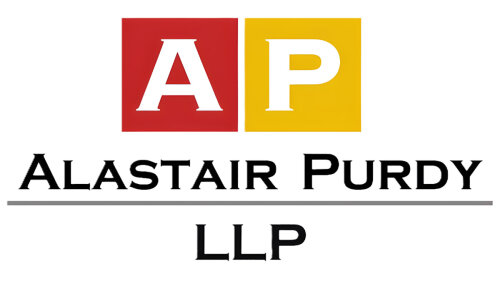Best Inheritance Law Lawyers in Galway
Share your needs with us, get contacted by law firms.
Free. Takes 2 min.
List of the best lawyers in Galway, Ireland
About Inheritance Law in Galway, Ireland
Inheritance law in Galway follows Irish law, applied nationwide across the Republic of Ireland. The key rules cover wills, intestacy, executors, and the administration of estates. If you live in Galway and someone you know dies, you may need a solicitor to guide you through the probate process and ensure assets are distributed correctly.
In Galway, as in the rest of Ireland, the High Court Probate Office handles grants of representation, which allow the legal handling of a deceased person’s estate. The process can involve collecting assets, paying debts, and distributing assets to beneficiaries under a valid will or the rules of intestacy. Working with a Galway solicitor who specialises in wills and probate helps you navigate complexity and timing, particularly for property in the region or assets held in Irish banks and companies.
Why You May Need a Lawyer
-
You are named as executor in a Galway will and must apply for a Grant of Probate. This requires gathering death certificates, the will, asset statements, and creditor claims, then filing with the Probate Office. A solicitor can prepare the application and handle correspondence with banks and asset holders in Galway and beyond.
-
A will is being challenged by a family member in Galway. You need a solicitor to assess capacity, evidence of undue influence, or revocation issues and to represent your position in court or mediation.
-
No will exists (intestacy). Your spouse, children, or other relatives in Galway may have conflicting expectations about who inherits. A solicitor can advise on the statutory distribution scheme under Irish law and help file for Letters of Administration where needed.
-
Assets include a Galway house, bank accounts, and farmland with cross-border or foreign holdings. A solicitor can coordinate probate in Ireland and, if relevant, cross-border succession rules under EU law to ensure timely administration.
-
You suspect mismanagement of the estate by the executor or administrator. A lawyer can request accounting, address delays, and pursue remedies through negotiation or escalation to the courts if necessary.
-
You face inheritance tax and want to understand Capital Acquisitions Tax (CAT) implications for a Galway heir. A solicitor can plan with you to maximise reliefs and comply with reporting requirements.
Local Laws Overview
Key statutes govern wills, intestacy, and taxation of inheritances in Ireland, with Galway residents benefiting from the same framework as the rest of the country. The major provisions include the following statutes and concepts:
- Succession Act 1965 (as amended) - The cornerstone statute governing wills, intestacy, and testamentary dispositions in Ireland. It defines who may inherit, how a will is interpreted, and how assets are distributed when there is no will.
- Inheritance (Provision for Family and Dependants) Act 1976 - Allows certain family members and dependants to apply to the court for provision from an estate if the will does not make reasonable provision for them.
- Capital Acquisitions Tax Consolidation Act 2003 (as amended) - Sets the rules for tax on gifts and inheritances administered by the Revenue Commissioners. Rates and reliefs are updated periodically by Finance Acts and Revenue guidance.
"Capital Acquisitions Tax is charged on gifts and inheritances above certain thresholds, with rates and reliefs varying by relationship to the disponer."
These laws apply to assets located in Galway as well as assets elsewhere. The Courts Service explains how a Grant of Probate or Letters of Administration authorises the personal representative to deal with an estate. For practical guidance on wills, probate and related matters in Ireland, you can consult Citizens Information.
Useful authorities: gov.ie - Wills and probate guidance, Revenue - Capital Acquisitions Tax (CAT), Courts Service - Probate, Citizens Information - Wills and probate
Frequently Asked Questions
What is a Grant of Probate and when do I need it?
A Grant of Probate is the official permission to deal with a deceased person’s assets under a will. You typically need it when you administer or distribute an estate in Galway. The executor must apply to the Probate Office for the grant.
What is the difference between a will and intestacy?
A will specifies who inherits and how assets are distributed. Intestacy applies when there is no valid will, and the state distribution rules determine heirs in Galway.
How much does probate typically cost in Galway?
Costs include solicitors’ fees, court fees, and potential expert fees. Fees vary by estate size and complexity. A solicitor can provide a clear estimate after reviewing the will and assets.
How long does probate take in Ireland?
Timelines vary widely. Simple cases can take 6 to 9 months; more complex estates, especially with multiple properties or foreign assets, can take a year or more.
Do I need a solicitor to make or update a will in Galway?
While you can draft a will yourself, a Galway solicitor reduces risks of invalid provisions or disputes later. A professional will also help ensure it complies with Irish legal standards.
What qualifies as a dependent under the Inheritance Act 1976?
Dependents include spouses, civil partners, children, and in some cases other family members who relied on the deceased for maintenance. The court considers individual circumstances.
What’s the difference between executors and administrators?
Executors administer estates with a will. Administrators handle estates when there is no will. Both seek a grant from the Probate Office before distributing assets.
Can I contest a will in Galway?
Yes, you can challenge a will on grounds such as lack of capacity, undue influence, or failure to provide reasonable provision for dependents. Seek advice promptly to preserve rights.
Do I need to register a will in Ireland?
Wills are typically not registered in a central public register in Ireland. You should keep your will in a safe place and inform your solicitor and executors of its location.
Is inheritance tax payable on all estates?
Inheritance tax in Ireland is charged as Capital Acquisitions Tax (CAT) above thresholds. The rate and reliefs depend on the relationship between the disponer and the beneficiary.
What happens if assets include foreign property or bank accounts?
Assets abroad may require probate in other jurisdictions or recognition under EU cross-border rules. A Galway solicitor can coordinate Irish probate with foreign processes.
Additional Resources
- Citizens Information - Wills and probate guidance, definitions, and steps for applying for grants in Ireland. https://www.citizensinformation.ie/en/legal_system/wills_and_probate/
- Revenue Commissioners - Capital Acquisitions Tax (CAT) rates, thresholds, reliefs, and filing requirements. https://www.revenue.ie/en/tax-professionals/capital-acquisitions-tax/index.html
- Courts Service / Probate - Processing grants of representation, probate documentation, and related guidance. https://www.courts.ie/probate
Next Steps
- Identify your needs: determine if you require a Grant of Probate, Letters of Administration, or assistance with a dispute in Galway.
- Gather key documents: death certificate, will (if any), asset registers, mortgage statements, and details of bank accounts.
- Search for a Galway solicitor who specialises in wills and probate. Use the Law Society Find a Solicitor tool and local referrals.
- Request initial consultations with 2-3 solicitors to compare approach, fees, and estimated timelines. Ask for clear fee estimates.
- Clarify whether any assets are abroad or require cross-border probate, and discuss potential EU succession rules if relevant.
- Confirm the required grant type (probate vs letters of administration) based on whether a will exists and who inherits.
- Engage the chosen solicitor with a signed engagement letter and a plan with milestone dates for filing and distribution.
Lawzana helps you find the best lawyers and law firms in Galway through a curated and pre-screened list of qualified legal professionals. Our platform offers rankings and detailed profiles of attorneys and law firms, allowing you to compare based on practice areas, including Inheritance Law, experience, and client feedback.
Each profile includes a description of the firm's areas of practice, client reviews, team members and partners, year of establishment, spoken languages, office locations, contact information, social media presence, and any published articles or resources. Most firms on our platform speak English and are experienced in both local and international legal matters.
Get a quote from top-rated law firms in Galway, Ireland — quickly, securely, and without unnecessary hassle.
Disclaimer:
The information provided on this page is for general informational purposes only and does not constitute legal advice. While we strive to ensure the accuracy and relevance of the content, legal information may change over time, and interpretations of the law can vary. You should always consult with a qualified legal professional for advice specific to your situation.
We disclaim all liability for actions taken or not taken based on the content of this page. If you believe any information is incorrect or outdated, please contact us, and we will review and update it where appropriate.










